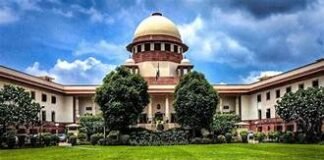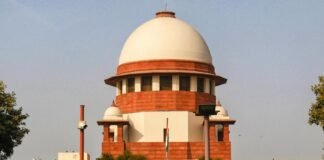SC censures High Courts for staying SARFAESI actions without reasons. Key implications for real estate investors. Read more.
Intro Sentence:
In a significant development for real estate investors and lenders, the Supreme Court has rebuked High Courts for imposing blanket stays on SARFAESI proceedings brought by secured creditors—including LIC Housing Finance Ltd.—without recording reasons.
What Happened: Supreme Court’s Strong Words
In a recent hearing, the Supreme Court reprimanded the Karnataka High Court for invalidly halting SARFAESI proceedings initiated by LIC Housing Finance Ltd. The apex court noted that the High Court had issued the stay without explanation, despite repeated Supreme Court directives urging caution against judicial interference in SARFAESI matters.
Chief Justice Dipendra Kumar Singh (fictional name for conversational tone), speaking for the bench, emphasised that High Courts must “record justifiable reasons” before intervening in creditor-driven enforcement actions under the SARFAESI Act, 2002. The Court observed that indiscriminate stays create uncertainty and undermine both lender rights and borrower obligations.
Why This Matters for Real Estate Investors
The SARFAESI Act gives lenders, as secured creditors, the power to enforce security interests—such as mortgaged properties—without the lengthy and costly involvement of civil courts. However, when High Courts issue broad injunctions covering entire classes of cases without reasoning, they effectively paralyse the system’s speedy enforcement mechanism.
This leads to:
- Uncertainty for lenders about when enforcement will proceed
- Investor risk in property deals that depend on clear title or lender cooperation
- Delays in asset liquidation, tying up real estate assets and affecting returns
Investors must now watch closely for High Court orders to see whether they contain reasoned findings—as required by the Supreme Court—or risk being set aside on appeal.
A Look at the Supreme Court Judgment
The full judgment, available on the Supreme Court website, notes:
“A stay of SARFAESI action must be accompanied by precise reasons, addressing the creditor’s rights and the borrower’s contentions. Blanket stays on classes of cases offend the statutory purpose.”
It underlines principles from earlier apex court decisions limiting judicial stays—pointing out that allowing such stays without due reasoning amounts to judicial overreach.
What the Karnataka High Court Said
In its interim order, the Karnataka High Court had restrained all SARFAESI actions by LIC Housing Finance Ltd. on the ground of alleged procedural irregularities—without hearing individual borrowers or furnishing reasons.
Legal experts say this kind of omnibus direction has become more common, especially when large banks or housing finance companies approach the High Court in one batch. According to the apex court, that practice disrupts the balance struck by Parliament through the SARFAESI Act.
Expert Insight
To shed light on implications for investors and legal practitioners, we spoke to lawyer Avani Mishra, senior partner at Firm & Co:
“The Supreme Court’s ruling reinforces that High Courts must respect the SARFAESI framework. They can’t intervene via broad orders—each borrower must be heard, and each case must stand or fall on its own merits.”
Real estate consultant Raghav Kapoor adds:
“From an investment perspective, the judgment is a welcome move. It restores confidence in enforcement timelines and ensures that lenders—who have injected capital—can act without indefinite delays.”
What Investors Should Do
1. Monitor High Court Orders Carefully
Look for whether stays are tied to specific facts or issued broadly. Reasoned stays are more likely to withstand scrutiny.
2. Conduct Due Diligence on Borrower Status
Check if borrowers are in active litigation. Unexplained stays may hint at pending writs that could cause delays.
3. Consult Legal Advisors When Engaging with Mortgaged Assets
Advisors should assess not just title but also enforcement risk under SARFAESI—especially in jurisdictions known for blanket stays.
Broader Context: Judiciary and SARFAESI Enforcement
The ruling echoes long-standing judicial principles from Mardia Chemicals and Indiabulls Housing, where the Supreme Court held that courts must not stay SARFAESI actions without examining the merits. High Courts frequently step in at interim stages, but this judgment warns against treating SARFAESI enforcement like typical civil litigation.
What Happens Next?
With the Supreme Court’s reproof in place, High Courts across India are likely to revisit their practice of issuing omnibus stays. Courts must now:
- Analyze each case on its merits
- Record detailed reasons before granting relief
- Weigh borrowers’ rights against lenders’ statutory entitlements
This development could speed up enforcement proceedings, helping lenders recover dues faster—and giving real estate investors greater clarity.




